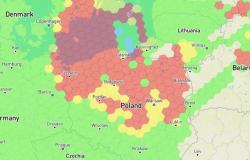The debts of the Czech economy have been talked about almost constantly lately. But what hidden economic and financial challenges await it in the coming years? At this year’s Retail Summit, David Marek, Deloitte’s chief economist and advisor to the president, explained the debts to our future.
In addition to debts that are completely known, let’s say official, there are still sums necessary for the further economic development of the country. Marek presented four basic areas in which money will need to be invested in the near future in order to bring about the economic transformation that everyone is calling for. It concerns energy, transport infrastructure, education and an aging population. So it is not about debts in the true sense of the word, but about investments for which the Czech Republic should find funds and invest them well.
“We can look at it as an investment. Something we owe to ourselves, something we owe to our own future in order to be the economy of the 21st century,” Marek explained these invisible debts.
Energy wants trillions
According to Mark, the first big “debt” is in energy. The demand for electricity will increase in the future, for example due to the gradual transition to electromobility or greater use of heat pumps, which are relatively demanding on electricity consumption.
It is also necessary to realize that some sources of electricity will also disappear, Marek mentions, for example, coal-fired power plants, which will become uneconomical in the future due to the pressure on ecology. It will therefore be necessary to invest in new sources such as nuclear energy, photovoltaics and wind or gas power plants. This will also require the strengthening of the transmission and distribution network.
The economist estimates the amount of this hidden debt at three to four trillion crowns. Of this, 400 to 500 billion crowns will need to be invested in transmission and distribution alone.
“In total, the hidden energy debt is about 50 percent of the gross domestic product,” adds Marek.
Infrastructure will also need money
Another challenge that awaits the Czech Republic in the next few years is the solution to the transport infrastructure. Compared to other countries, it is still lagging, for example, in the construction of highways or high-speed railways. The Czech Republic in particular needs quality infrastructure for several reasons.
“We are a country that should have top-notch transport infrastructure, for the reason that we have relatively high demands. We are the country with the largest volume of passenger transport in relation to GDP in the entire EU,” says Marek. At the same time, the Czech Republic is the fifth country in the EU in terms of GDP to the volume of freight transport.
Such demands on the transport network should somehow also be reflected in investments.
David Marek
David Marek is a Czech economist, consultant and columnist. He graduated from FSV UK, where he also received a doctorate. Since 2014, he has been the chief economist of the Czech branch of Deloitte. In addition, he is an advisor to President Petr Pavel.
Photo: Michal Šula, Seznam Zpravy
David Marek.
Marek illustrates the shortcomings of road transport by comparing them with other EU countries. In the field of road infrastructure in the Czech Republic, there are 17 meters of highways or expressways per square kilometer. In the western countries of the EU, however, this number is many times higher. In neighboring Germany it is 37 meters per square kilometer, in Belgium it is 58 meters and in the Netherlands even 75 meters.
There is also a deficit in the area of rail transport. There are currently zero kilometers of high-speed railways in the Czech Republic. However, this deficiency should be reduced before long, and 700 kilometers should be built by 2050. In total, deficits in transport infrastructure should cost five trillion crowns, i.e. 68 percent of GDP.

Investment is necessary in education
According to Marko, the most cruel is the deficit in the field of education, science and research.
“In this area, specifically in education, we spend 4.6 percent of the gross domestic product. Countries that do it smarter and know that it is a priority give one percentage point more,” comments Marek, adding that the situation is similar in science and research, where compared to the Czech two per cent of GDP, the top 10 EU countries invest 2.8 per cent.
Despite this deficit, the Czech Republic has very good results in terms of education. Marek points, for example, to the results of the Program for International Student Assessment (PISA), which the Organization for Economic Cooperation and Development (OECD) uses to monitor the literacy of 15-year-old students in the basic disciplines, i.e. reading, math and science skills. In all categories, the Czech Republic is above average compared to other OECD countries.
“This tells me that if we invested more resources, we could be even more above average,” thinks Marek.
According to him, there is even greater potential in higher education, where, for example, Charles University is 248th in the world.
“If you wanted to build a global development center, would you build in a country that has a university ranked 250th in the world, or would you look for a place where there is a better chance of finding the best brains?” asks the economist.

He also sees shortcomings in efficiency. Specifically, how quickly we can transform knowledge into higher added value. According to him, it is necessary to turn science and research first into patents and then into applied development and research. In the number of patents per million inhabitants, the Czech Republic is currently 34th in the world with 60.7 patents.
Marek also tried to calculate how much money would be needed for the Czech Republic to make up the deficit against the ten countries with the largest expenditures in these three areas. For such a call, 132 billion crowns would be missing annually.
“If we were able to keep this amount in the following years, then the current value of additional expenses is about 4.4 trillion crowns,” thinks Marek. That’s about 60 percent of gross domestic product.
Population aging
The inevitable deficit also results from demographic developments. According to Marko, the aging population will burden the economy not only with retirement pensions, but also with the health and long-term care that aging people will require. Thanks to the changes that are now being prepared as part of the pension reform, these future deficits have been roughly halved, but certainly not completely.

The funds that the Czech Republic will have to find to finance the pension system amount to 3.5 trillion crowns. That’s roughly 48 percent of gross domestic product.
Underlined, summed up
If all these hidden debts are added up, we arrive at a value of 275 percent of the gross domestic product. Energy, transport infrastructure and education, according to Marko, do not have to be seen only as debt, but also as investments.
The Czech Republic would have to invest roughly 200 percent of GDP in order to realize the economic transformation. It may not be successful, but according to him, it is a necessary prerequisite and investment for the Czech Republic to move forward.
“It may seem that such a change is complicated. But try to look back in time to June 1953, when the war between South and North Korea ended. At the same time, half of the people now have a Korean phone in their pocket or drive a Korean car. Such a change is possible,” he concludes.
According to him, we now have twenty-five years – until 2050 – to be able to uncover these hidden debts and use them to our advantage.
Tags: bill future economist calculated economic development cost
-









